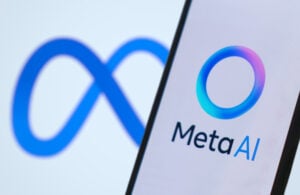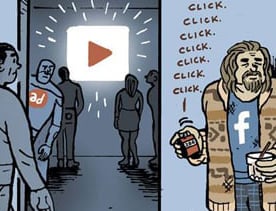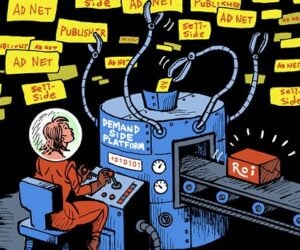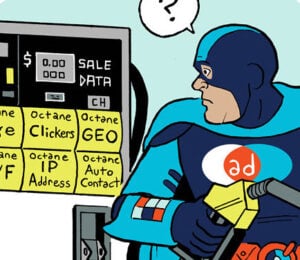Twenty years ago, Facebook came out with a new feature that let you poke your friends. (Remember pokes?)
Now, Meta is investing hundreds of billions of dollars in AI to purportedly develop “personal superintelligence,” in CEO Mark Zuckerberg’s words, that teaches itself and outpaces human cognition.
Quite the evolution.
“AI that surpasses human intelligence in every way we think is now in sight,” CEO Mark Zuckerberg told investors during the company’s Q2 earnings call on Wednesday. “Meta’s vision is to bring personal superintelligence to everyone so that people can direct it towards what they value in their own lives.”
Zuckerberg waxed poetic about a not-so-far-off future in which superintelligence “empowers people to be more creative, develop culture and communities, connect with each other and lead more fulfilling lives.”
Cool, cool. But, meanwhile, Meta remains primarily an advertising company.
Total revenue in the second quarter was $47.5 billion, up 22% year over year, with advertising accounting for nearly all of that at $46.6 billion, up 21% YOY.
Meta’s stock soared by more than 11% in after-hours trading.
Ad-romeda
Meta is making a massive investment in AI because “we have a conviction that superintelligence is going to improve every aspect of what we do,” Zuckerberg said.
And that includes improving ad performance, of course.
Zuckerberg attributed Meta’s particularly strong performance in Q2 to its ads business “unlocking greater efficiency and gains” by applying AI across its system.
For example, in Q2, Meta introduced new personalization enhancements to Andromeda, its AI-powered recommendation model for ads. Andromeda underpins the ad retrieval stage of Meta’s ad system by selecting several thousand relevant ads to serve at any given moment from a pool of tens of millions of potential candidates.
These improvements drove roughly 5% more ad conversions on Instagram and 3% more on Facebook, according to Zuckerberg. Andromeda is also being rolled out to new surfaces, including Facebook Reels.
Pricing and performance
Meta’s “engagement tailwinds,” in the words of CFO Susan Li, led to an 11% uptick in the total number of ad impressions across all of Meta’s properties, although ad load optimizations on Facebook were also a factor.
And demand was there to meet the scaled-up supply.
The average price per ad increased by 9% in the second quarter driven by improved ad performance. Although pricing growth overall slowed modestly quarter over quarter because of accelerated impression growth in Q2 across the family of apps.
These results are directly related to Meta’s focus on improving monetization efficiency, Li said.
“We continue to optimize ad supply across each surface to better deliver ads at the time and place they are most relevant to people,” she said.
A-eye
But even as Meta refines the mechanics of its advertising system, its vision is fixed on advanced AI intelligence and, well, eyeglasses.
Although overall VR headset sales declined, sales of AI-powered Ray-Ban Meta glasses have tripled year over year.
In response to an investor question about whether smart glasses will eventually replace smartphones, Zuckerberg answered with a “yes, and.”
He views glasses as the ideal form factor for AI because people can engage both visually and auditorily while staying hands-free and, unlike in virtual reality, connected to their physical surroundings.
“I wear contact lenses, and if I didn’t have my vision corrected, I’d be at a cognitive disadvantage going through the world,” Zuckerberg said. “I think in the future, if you don’t have glasses that have AI or some way to interact with AI, [you’ll] probably be at a pretty significant cognitive disadvantage compared to other people who you’re working with or competing against.”















